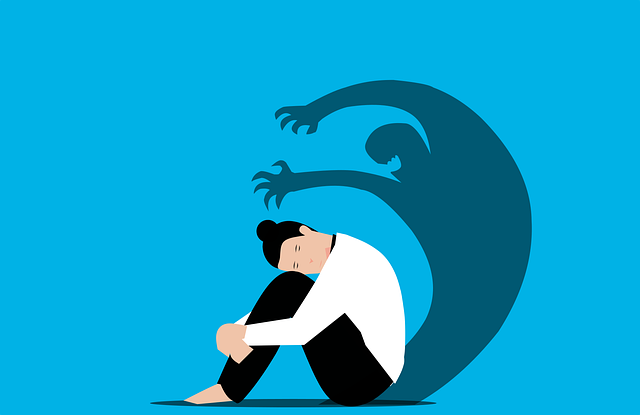Despite age stereotypes, trauma and conditions like ADD/ADHD significantly impact seniors. Effective support involves tailored therapy models addressing unique challenges. Risk assessments, self-esteem building, and mental health policy advocacy create a safer societal framework. Specialized evaluation methods are needed for aging individuals with ADD/ADHD due to differing symptom presentation. Key interventions include CBT adapted for elders, mindfulness therapies, conflict resolution skills, and self-care practices. Early identification and evidence-based interventions improve quality of life, managing symptoms and promoting engagement in meaningful activities.
Trauma support services are often overlooked when it comes to elderly care, yet they’re vital for addressing the unique challenges faced by this demographic. This article delves into three critical areas: understanding trauma’s profound effect on elders, evaluating ADHD and ADD in the elderly population, and exploring effective therapy approaches tailored to their specific needs. By examining these aspects, we can enhance our provision of compassionate care, focusing on both mental health and neurological conditions that impact older adults. Keyword focus: Therapy for Elders, ADD-ADHD Evaluations.
- Understanding Trauma and its Impact on Elders
- Evaluating ADD-ADHD in an Elderly Population
- Effective Therapy Approaches for Elderly Individuals with Trauma and ADD-ADHD
Understanding Trauma and its Impact on Elders

Trauma can profoundly affect elders, often manifesting in unexpected ways given societal perceptions of age and resilience. Understanding trauma’s intricate relationship with aging is crucial for providing adequate support to this demographic. Elders may experience symptoms such as heightened anxiety, flashbacks, or emotional numbing, which can significantly impair daily functioning and quality of life. Recognizing these signs is the first step towards offering effective assistance.
The provision of trauma support services for elders must be tailored to their unique needs. This includes accessible and age-appropriate therapy models that address not only the traumatic event but also any resulting mental health conditions, such as ADD/ADHD. Incorporating risk assessments for mental health professionals ensures a safe and effective therapeutic environment. Moreover, focusing on self-esteem improvement and mental health policy analysis and advocacy can help create a more supportive societal framework for elders recovering from trauma.
Evaluating ADD-ADHD in an Elderly Population

Evaluating Attention Deficit Disorder (ADD) or Attention Deficit Hyperactivity Disorder (ADHD) in an elderly population is a specialized task that requires nuanced approaches, as symptoms may present differently compared to younger individuals. Traditional diagnostic methods for ADD/ADHD often focus on childhood behaviors and may not fully capture the unique challenges faced by seniors. This is where therapy for elders with ADD-ADHD evaluations becomes crucial. Mental health professionals must employ tailored assessment tools and interview techniques to understand the specific impacts of these disorders on older adults, considering age-related changes and comorbidities.
Resilience building, conflict resolution techniques, and self-care practices are essential components of supportive care for this demographic. By integrating evidence-based interventions, therapists can enhance the quality of life for seniors struggling with ADD/ADHD, helping them manage symptoms, improve focus, and engage in meaningful activities despite cognitive changes. Early identification and appropriate therapy can significantly contribute to the overall well-being of elderly individuals dealing with these often underdiagnosed conditions.
Effective Therapy Approaches for Elderly Individuals with Trauma and ADD-ADHD

Elderly individuals with trauma often face unique challenges when it comes to therapy due to age-related factors and comorbid conditions like ADD-ADHD. Effective therapy approaches for this demographic must consider both the trauma and any cognitive or behavioral differences associated with aging. One successful method is Cognitive Behavioral Therapy (CBT), which helps seniors identify and change negative thought patterns stemming from traumatic experiences. CBT is adapted to suit older adults, focusing on realistic goals and incorporating activities that promote engagement and memory retention.
Additionally, Mindfulness-Based Therapies have gained popularity for their ability to enhance mental flexibility and self-awareness in the elderly. These therapies teach individuals to focus on the present moment without judgment, thereby reducing symptoms of anxiety and depression often associated with trauma. Empathy building strategies are also crucial, as therapists must approach each senior with understanding and respect for their experiences. Mental health education programs designed specifically for the elderly can further equip them with tools for managing mood, coping with stress, and improving overall mental well-being.
In light of the complex issues faced by elderly individuals, including trauma and co-occurring ADD-ADHD, it’s clear that specialized and tailored support is essential. Effective therapy approaches, such as cognitive behavioral therapy and mindfulness practices, can significantly enhance their quality of life. Healthcare professionals play a crucial role in evaluating and providing appropriate care through comprehensive assessments, ensuring personalized treatment plans. By combining trauma support with ADD-ADHD management, we can foster healing and empower seniors to navigate their challenges with resilience.










